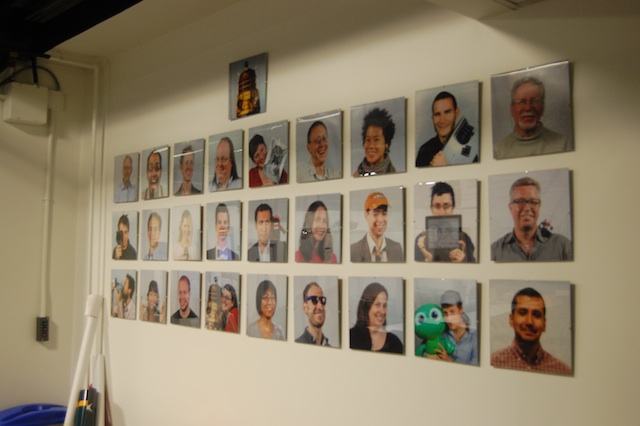
It’s early September and a new crew of master’s students are starting work at Center for Civic Media. If you’re interested in becoming part of next year’s team, this is a great time to start working on your application, and you likely have some questions about how one gets accepted to work at Center for Civic Media. This post tries to offer some answers.
Who gets accepted to work at Center for Civic Media?
We accept a small number of masters candidates for study every year, usually two to four people in total. Some apply through the MIT Media Lab, where they will be earning an S.M. degree in Media Arts and Sciences. Others apply through Comparative Media Studies/Writing, where they will earn an S.M. in Comparative Media Studies. We are not currently admitting doctoral candidates.
While the requirements for degrees through the Media Lab and through Comparative Media Studies are different, successful candidates for Center for Civic Media tend to have certain traits in common. They’re interested in social change and involved with social movements, in their communities or focused on global issues. They write well and often have a background in journalism or citizen media. They have a deep understanding of information technology and often are talented programmers.
Work through the Media Lab is highly project-focused, so successful candidates for Center for Civic Media need to be able to carry out projects either through their own programming and technical skills or by overseeing teams of undergraduate software developers. We are far more likely to accept people with a track record of creating software than people who’ve not programmed or managed programmers before.
Work through Comparative Media Studies can also involve implementing new tools but focuses heavily on scholarly research. Demonstrated ability to carry out this research independently and at a high level is helpful for a strong candidacy.
What projects will I work on?
Both Media Lab and CMS students work on a combination of ongoing research projects and their own research ideas. In effect, students work twenty hours a week on Center for Civic Media research in exchange for a tuition waiver and a stipend. It’s helpful to identify projects you could contribute to in our portfolio of existing research. It’s at least as important to identify research ideas you want to explore. While we understand your research interest may (and, perhaps, should!) shift during your time at MIT, it’s really helpful to see what questions you are passionate about exploring as an applicant.
Who will I work with?
You’re likely to work with a number of faculty members, affiliates, research fellows and students. Most students end up working closely either with me or Sasha Costanza-Chock, two of the Center’s principal investigators. But you’re likely to work in teams and with different groups of people as you work on different projects.
Can I visit Center for Civic Media? Can I talk with faculty about my application?
Yes, and no. You’re very welcome to visit us, either during our formal open house, during our Google Hangout sessions, or by joining one of our public lab meetings, held alternate Thursday afternoons or public lunches. All these events are publicized on our website. Unfortunately, we cannot schedule meetings for candidates to talk about Center for Civic Media and discuss your portfolio and application. We receive close to two hundred applications a year and cannot meet with everyone who requests a meeting. And since not everyone is able to visit the Center, we have chosen not to set up meetings with people visiting out of fairness to people who cannot visit.
Is there an interview process associated with the application?
Yes. Sasha Costanza-Chock and I read each application that comes in and determine shortlists of candidates. Existing students and staff read those shortlisted applications, and we select a small set of candidates who interview with staff and students over audio or videoconference.
What are the most important parts of my application?
We want to see evidence that you are thinking about the relationship between media, civics, and social change in a sophisticated and committed way – we want to see evidence of this in your essay and in your C.V. It’s important to articulate a project that you want to work on or a research direction you want to explore. Make it clear why the Center for Civic Media is the right place to explore the questions that excite you. We get a surprising number of applications in which applicants tell us how excited they are to study at MIT or to be part of MIT’s Media Lab – those applications aren’t as successful as ones that help us understand how your research interests fit in with ours at the Center.

